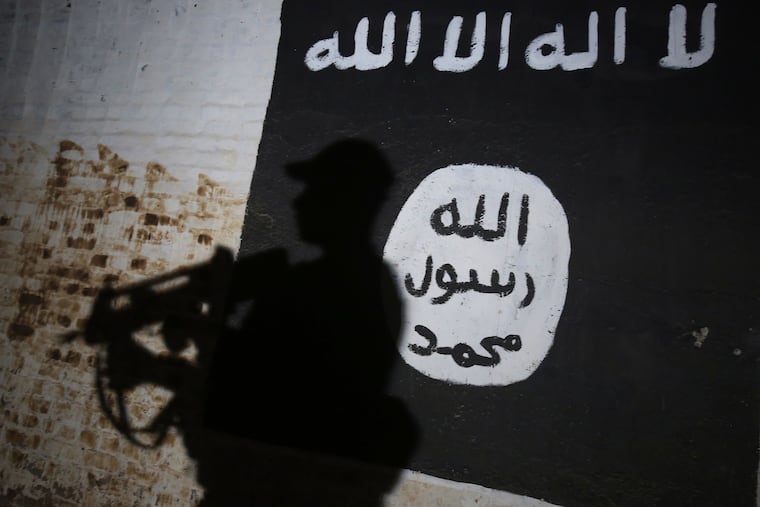Ex-Penn State Abington student to be deported to Russia for lying about ties to ISIS
Kamal Fataliev's ties to potential terrorists online came to light amid an investigation into an averted attack on mosques in Chicago over Memorial Day weekend 2022.

A former Penn State Abington student accused of posting more than 200 manuals for making bombs, poison, and weapons to terrorism-related chat groups will be deported to Russia after spending just over a year in prison, a federal judge ruled Monday.
Kamal Fataliev, 20, of Philadelphia, pleaded guilty last month to one count of lying on a U.S. citizenship application about his past contacts with sympathizers of the terror group ISIS.
His involvement with potential terrorists online came to light after federal authorities averted a planned 2022 Memorial Day attack in Chicago and discovered more than 700 messages between Fataliev and one of the suspected plotters, authorities have said.
But despite those plentiful communications online, Fataliev remained an enigma during his sentencing hearing Monday in federal court. He sat quietly next to his attorney throughout the proceedings — head down, sullen and dressed in a green prison jumpsuit — and declined to address the judge before his punishment was announced.
“I have nothing to say, sir,” Fataliev quietly told U.S. District Judge Harvey Bartle III. “Thank you.”
Bartle, meanwhile, said he was satisfied with the sentence prosecutors and Fataliev’s attorney had recommended as part of the man’s plea deal — which will lead to his release from custody Wednesday, after roughly 13 months behind bars, and his immediate deportation.
“You certainly got off on the wrong foot” in this country, Bartle told Fataliev. “But it’s unlikely you’ll be a further challenge or danger to the public.”
Fataliev’s lawyer, federal public defender Jonathan McDonald, offered little explanation for how his client — a U.S. permanent resident with Russian citizenship — found himself mired in the world of online extremists.
He’d previously described Fataliev as an exemplary student — a graduate of Pennsbury High School in Bucks County and a National Honor Society member who, up until his arrest, had maintained 3.99 GPA at Penn State while working in IT support for the university.
But federal authorities have maintained that sheen of academic success masked Fataliev’s darker proclivities online.
According to court filings, he admitted to agents in 2022 that he kept hundreds of firearms and explosive manuals on his computer. They said he’d provided them to people he believed to be legitimate ISIS fighters.
In terror-related chat groups, he adopted the ISIS flag as his profile photo and eagerly dove into conversations, including one about a plot to kill a French model who other participants believed had disrespected the Quran.
But when confronted again by the FBI a few months later, Fataliev maintained he’d abandoned radicalism and had sworn off any further contact with potential terrorists online.
Prosecutors said that resolve did not last.
Within months, Fataliev showed up on agents’ radar again — after they found manuals tied to him on the phone of a teenager involved in the Memorial Day 2022 plot to attack Shi’ite mosques and synagogues in Chicago, according to court filings.
Agents confronted him again after those conversations. Fataliev insisted he never offered any advice or encouragement for an attack and maintained he didn’t know of any impending terrorist strike.
Though prosecutors initially charged him with two counts of lying to the FBI, his decision to plead guilty last month to the separate charge of lying on a citizenship application came as part of a deal negotiated with the government over months.
Fataliev asserted on an application he filed in 2023 — amid his ongoing contact with the FBI — that he had no ties to terror groups.
His lawyer said Monday that under Fataliev’s sentence, he will now be barred from returning to the United States.
“This is a young man who came from a good family,” he said. “He’s taken responsibility, and he’s prepared to go back and continue his life in Russia.”